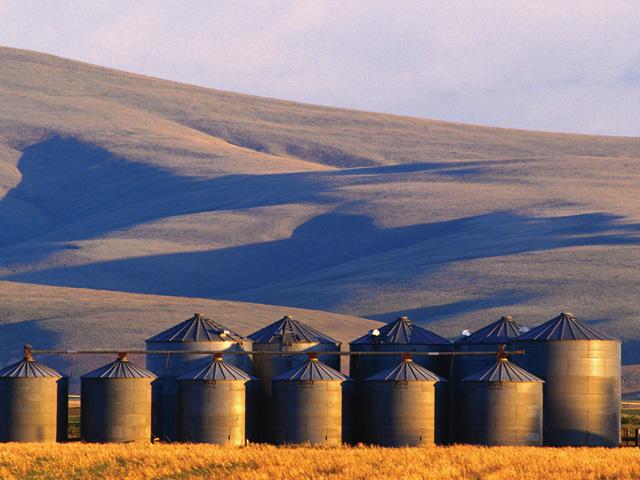Farm Bill May Address China Land Buys
Ernst, Stabenow Seek to Strengthen USDA Policing of Foreign Land Purchases
LINCOLN, Neb. (DTN) -- A move to monitor and regulate China and other countries that buy farmland in the U.S. continues to pick up steam as a provision to grant USDA more oversight could be attached to the next farm bill.
Sen. Joni Ernst, R-Iowa, announced Tuesday plans to address a common concern she said she often hears from farmers.
"Iowa farmers know well, food security is national security," Ernst said during a press call.
"The increasing foreign investment in American farmland represents a grave threat to our national security. I've been traveling from river to river (in Iowa) as I do every year and I consistently hear from our farmers and agriculture leaders have their serious concerns with this issue. But it's not just our farmers who are sounding the alarm."
Along with Sen. Debbie Stabenow, D-Mich., chairwoman of the Senate Agriculture Committee, Ernst said she hopes the next farm bill will include an "overhaul" of the system that has "allowed U.S. national security risks to go on for far too long."
Ernst and Stabenow want to give USDA more oversight authority through the Agricultural Foreign Investment Disclosure Act to be able to investigate foreign investment in U.S. agriculture, by allowing the agency to "upgrade the tools available to them" to "combat nefarious interests" in American farmland.
That would include creating a public database of ag land owned by foreign interests and an audit of such ownership. Ernst said she also wants to prohibit foreign nationals from participating in Farm Service Agency programs.
"And as you all know right now in the ag committee we're working through the 2023 farm bill," Ernst said.
"So, it is my hope that we can bring this issue out of the shadows and in[to] this year's farm bill, so we have a clearer picture of what foreign interests there are in our valuable farmland."
Taking steps to clamp down on foreign ownership of U.S. farmland is seeing growing bipartisan support.
P[L1] D[0x0] M[300x250] OOP[F] ADUNIT[] T[]
Ernst said both Democrats and Republicans increasingly agree something needs to be done.
Last summer, a Chinese company purchased 300 acres of good farm ground north of Grand Forks, North Dakota -- near the Grand Forks Air Force Base that houses sensitive military drone technology.
Earlier this month, the House Appropriations Committee voted in an annual funding bill to direct USDA to write a rule prohibiting people or companies tied to Iran, China, Russia or North Korea from buying U.S. farmland.
The House Ways and Means Committee also voted to require people from the same countries, as well as Cuba and Venezuela, to pay a 60% excise tax if they are trying to buy U.S. farm ground.
According to USDA, Chinese investors own roughly 384,000 acres of U.S. farmland, or less than 1% of all foreign-held farmland.
Chinese land ownership rose by about 31,000 acres from the end of 2020 to the end of 2021, according to the latest report by USDA. Those numbers might not be fully accurate because USDA doesn't have an enforcement mechanism to assure all foreign land purchases are reported.
"We cannot afford to give the Chinese Communist Party any access to our nation's security secrets," Ernst told reporters.
"The staggering upward trend of foreign ownership of our precious U.S. farmland is a national security concern that we cannot turn away from. It's time we get tough on China and our adversaries by drawing a line in the sand when it comes to our agriculture industry and the food security of our nation."
The state of Iowa has a 320-acre prohibition on the amount of ag land individual foreign investors can own.
"But we don't have those same types of codes all across the country," Ernst said.
"If you look at the total number of acres that are owned by foreign entities here in the U.S., if you add all those acres up together, it's larger than the state of Tennessee. And that is very, very concerning, especially when you look at the highly productive ag land that we have across the Midwest."
When it comes to Iowa farmers, China is one of the largest trading partners.
Ernst's proposed actions raise the question: Would expanded oversight of foreign investments in Iowa agriculture hurt that trade relationship?
"No, it really shouldn't," she said.
"If you look at the practices in China, China prohibits just outright prohibits foreign ownership of Chinese land. So, this shouldn't be offensive in any sort of manner to the Chinese. We're just protecting our national security interests here in the United States."
Read more on DTN:
"House Seeks to Halt Chinese Land Buys," https://www.dtnpf.com/…
"Senators Want More Details on Foreign Ownership of U.S. Farmland," https://www.dtnpf.com/…
"Concerns About Ag Land Sales," https://www.dtnpf.com/…
Todd Neeley can be reached at todd.neeley@dtn.com
Follow him on Twitter @DTNeeley
(c) Copyright 2023 DTN, LLC. All rights reserved.




